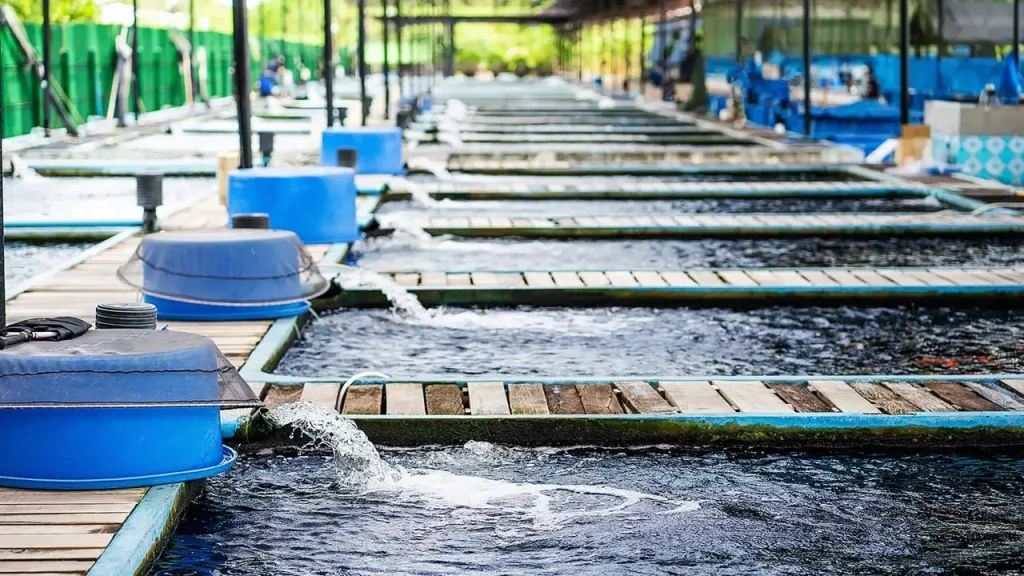Français Messi Biology a déclaré qu’en aquaculture, l’odeur causée par le sulfure d’hydrogène et d’autres composés organiques contenant du soufre produits par l’accumulation à long terme de boues en raison d’une alimentation fréquente ou d’un dessablage à long terme est un problème courant. L’utilisation d’hydroxyde de magnésium ou d’oxyde de magnésium comme agent de traitement peut fournir une plage de pH appropriée (8,5 à 9,0) et peut durer longtemps. Le sulfate de magnésium produit se dissout dans l’eau sans aucun dommage. L’utilisation d’hydroxyde de magnésium pour éliminer le sulfure d’hydrogène de l’eau est un plan de mise en œuvre avec des ressources facilement disponibles, respectueux de l’environnement, faisable technologiquement, rationnel économique, simple d’utilisation et sûr. Il a une histoire d’au moins 15 ans à l’étranger, qu’il s’agisse de traitement des eaux usées. Il fonctionne très bien dans les usines, les égouts et les applications d’aquaculture.

Le mécanisme d’action de l’hydroxyde de magnésium
Lorsque la matière organique des boues au fond de la ferme aquacole se décompose, cette zone est dans un état anaérobie. En conséquence, les bactéries sulfato-réductrices anaérobies Thiobacillus (abréviation anglaise SRB, identique ci-dessous) peuvent se développer et avoir une activité considérable, ce qui peut réduire le sulfate en sulfure d’hydrogène (H2S). Dans la plupart des cas, le H2S généré par les boues de fond est produit par les SRB. En d’autres termes, les SRB ne peuvent se reproduire que dans une eau faiblement acide. Lorsque la valeur du pH de la masse d’eau est supérieure à 8,5 (généralement 8,5 ~ 9,0), les SRB ne peuvent pas survivre. Par conséquent, l’épandage d’hydroxyde de magnésium dans les boues de fond augmentera le pH de l’eau au-dessus de 8,5. Bien que la solubilité de l’hydroxyde de magnésium soit très faible, le taux de dissociation en ions magnésium et en ions hydroxyde est continu. Tant que le dosage est suffisant, la faible alcalinité du plan d’eau restera longtemps, ce qui peut inhiber la croissance du SRB, éliminant ainsi la génération de sulfure d’hydrogène.
On peut le savoir à partir des réactions chimiques ci-dessus :
1, Au-dessus du niveau de l’eau dans l’égout, le sulfure d’hydrogène est oxydé en acide sulfurique par Thiobacillus, ce qui est la cause de la corrosion ;
2, Sous le niveau de l’eau, le sulfate est réduit par le SRB pour générer du sulfure d’hydrogène ;
Après avoir ajouté de l’oxyde de magnésium, l’oxyde de magnésium réagit avec l’eau pour former de l’hydroxyde de magnésium. L’H2S est adsorbé par l’hydroxyde de magnésium pour former une solution solide, qui est ensuite décomposée en sulfure d’hydrogène de magnésium et oxydée pour former du sulfate de magnésium, qui n’est ni odorant ni corrosif. Le sulfate de magnésium généré est également un supplément d’oligo-éléments qui est facilement absorbé par les poissons, les crevettes et les crabes. L’un des principaux ingrédients des produits à base de calcium et de magnésium que nous supplémentons habituellement est le sulfate de magnésium.
L’impact important du magnésium sur les poissons, les crevettes et les crabes
Le magnésium est un composant de la chlorophylle de certaines bactéries. Bien qu’il ne participe à la composition d’aucune substance de structure cellulaire, son état ionique est utilisé par de nombreuses enzymes importantes (telles que l’hexose phosphorylase, l’isocitrate déshydrogénase, la carboxylase, etc.) des activateurs. Les ions magnésium peuvent améliorer la tolérance de certaines bactéries productrices d’antibiotiques aminoglycosides (telles que la kanamycine, la streptomycine, la novobiocine, etc.) aux antibiotiques qu’elles produisent. Dans le même temps, les ions magnésium peuvent travailler avec les ions sodium et les ions potassium pour maintenir l’équilibre de la pression osmotique intracellulaire et intracellulaire, atténuer la réponse des animaux aquatiques au stress thermique, augmentant ainsi l’apport alimentaire des poissons, crevettes et crabes par temps chaud, et réduisant la chaleur causée par la température élevée des poissons, crevettes et crabes. réponse au stress.
Messi Biology recommande qu’en cas de stress thermique, la quantité d’oxyde de magnésium dans l’alimentation soit augmentée pour compenser la perte de magnésium dans l’organisme, afin d’assurer et de maintenir un équilibre corporel normal. Et le magnésium est un composant de la chlorophylle, dont ont besoin diverses algues. Le magnésium joue un rôle important dans le métabolisme du glucose. Les plantes ont besoin de plus de magnésium pendant le processus de fructification. Sans magnésium, la synthèse nette de l’acide ribonucléique (ARN) s’arrêtera, le métabolisme de l’azote sera perturbé et les glucides et les phospholipides instables s’accumuleront dans les cellules. Une carence en magnésium peut également affecter l’absorption du calcium.
